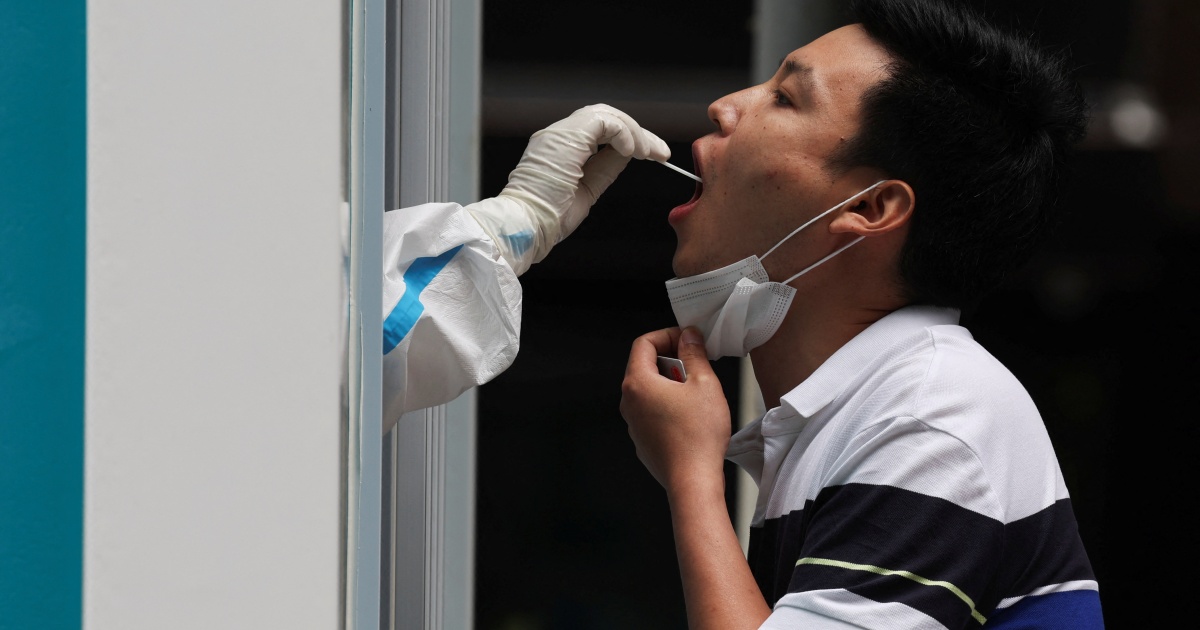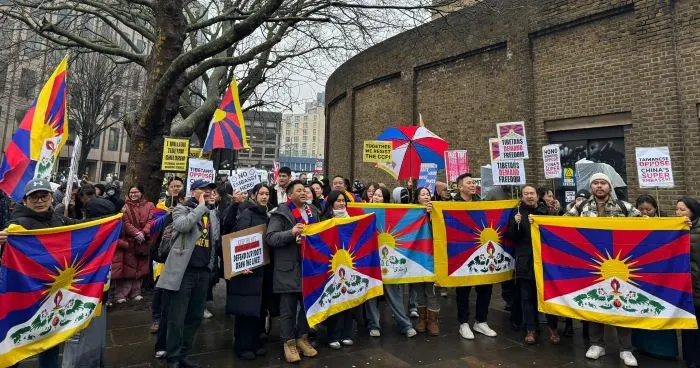China’s going off road to fight covid-19
Over the weekend, China’s Joint Prevention and Control Mechanism of the State Council named and shamed several city governments for imposing extra measures to fight Covid-19.
It was not the first time the State Council, China’s cabinet, has warned local governments against taking excessive Covid-19 controls. But observers questioned the effectiveness of these public reprimands as local officials face the impossible task of balancing the demands of the economy and China’s dynamic zero-Covid strategy against the highly contagious Omicron variant.
“The problem is highly paradoxical. The heads of local government cadres are set to roll, either by overdoing Covid containment or failing to contain it,” said Jin Dongyan, a virologist at the University of Hong Kong.
Several Omicron sublineages are circulating globally, including in China, and are expected to cause new surges because of their ability to spread fast and evade immunity from vaccines and past infections.
The State Council on Saturday named Bijie in Guizhou province, Nanchong in Sichuan, and Zhengzhou in Henan as examples of cities that had implemented arbitrary and excessive anti-pandemic measures ranging from citywide lockdowns, travel restrictions and sealing off residential compounds.
The next day, officials in cities including Zhengzhou and Inner Mongolia’s Hohhot apologised and vowed to rectify the excessive measures.
Death of 3-year-old boy in China sparks outrage over continuing zero-Covid lockdowns
For months, the State Council has reiterated its “nine forbids” – a set of rules banning arbitrary restrictions on movement and quarantine, refusing patients in critical condition and other measures. But the warnings seem to have fallen on deaf ears as draconian restrictions persist across the country.
Analysts pointed out that the stalemate was in part attributable to the power structure in China, which gives immense power to local governments on issues such as disease control.
Dali Yang, a political scientist at the University of Chicago, said Chinese law stipulates that local authorities are to be in charge of health matters, but the Joint Prevention Control Mechanism, which is staffed by the National Health Commission, provides policy guidance. “It’s much harder for them to enforce against provincial leaders,” he said.
As China counts down to the third anniversary of the Covid-19 outbreak, several local officials have been reprimanded or sacked for their failure to contain outbreaks. The punishments for officials blamed for ineffective pandemic controls have ranged from demotion and dismissal from office to party investigation.
Officials targeted include some once praised by Beijing as model civil servants, including Zhang Zheng, former party chief of Chengguan district in Lhasa, the regional capital of Tibet. Zhang was dismissed from office in August after a spike in cases in the city. Last year, he was among 103 “outstanding county chiefs” across the country recognised to commemorate the Communist Party’s centenary.
A total of 113 officials in Tibet alone were held responsible for a summer outbreak in the region.
An official’s record on fighting Covid-19 has become one of the key factors considered for promotion, according to a recent report by Xinhua documenting how delegates to the 20th party congress were selected.
Beijing also considered the fight against Covid-19 when it picked its newly formed Central Committee, which now seats the party’s 205 most powerful people, said Xinhua.
Some of China’s most senior officials such as Politburo newcomers Yin Li, Fujian party chief, and Chongqing party boss Chen Miner vowed this month to fight the pandemic by holding local governments accountable.
“The quest for zero-Covid is a deeply challenging problem in the sense that Xi [Jinping] has emphasised the importance of achieving zero but also minimising its costs. This has made finding a balance between the [zero-Covid] goal and promoting and stabilising the economy extraordinarily difficult,” Yang said.
“This is inherently contradictory in the sense that the existing policy tools are not adequate for achieving zero-Covid,” he added.
Experts also questioned what the central government’s demand for “scientific and precise” containment measures actually means in light of the highly infectious Omicron strain, which has made close contact tracing practically impossible.
“With an ill-advised and outdated decision model coming from the top, a lack of transparency and demonisation of Covid that has turned the Chinese population extremely fearful and ignorant over a disease that is not even as severe as influenza nowadays, China is stuck in a very sticky situation,” Jin said.
“China would be much better positioned to transition out of zero-Covid if it would channel one-tenth of its financial resources away from mass testing towards stepping up vaccination rates for the elderly and stockpiling antiviral medicine. But what they are basically doing now is all anti-science.”
Alfred Wu, associate professor at the Lee Kuan Yew School of Public Policy at the National University of Singapore, said it was only natural for local cadres to practise self-preservation, and local authorities should not be used as scapegoats for confusing policy goals set out by the central government.
“This is chaos created by the central government with its ambiguous and yet demanding policy goals without adequate support for local governments. It seems the State Council is trying to fend off external criticism by shifting the blame to local governments,” Wu said.













